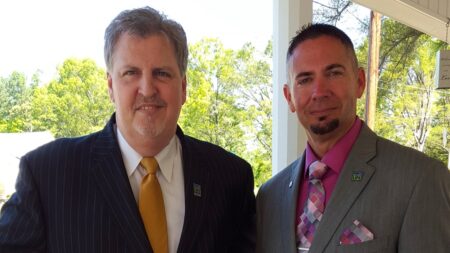As millions flock to churches across the United States to celebrate Holy Week, a subtle yet profound shift is occurring within American culture. More individuals are distancing themselves from traditional religious institutions, not because of a loss of faith, but in pursuit of a faith experience that aligns more closely with their personal beliefs and lifestyles. This phenomenon reflects an ongoing transformation in the landscape of spirituality and religion in America.
Recent research highlights that belief in a higher power is not disappearing; rather, it is evolving. A comprehensive study spanning a decade has revealed that fewer individuals regularly participate in organized religious services or affiliate with specific religious groups. However, a significant number of these individuals continue to engage in spiritual practices such as praying, meditating, and seeking a connection with the divine, albeit on their own terms. The findings of this research were published in “Socius: Sociological Research for a Dynamic World” and involved tracking over 1,300 adolescents from 2003 to 2013, monitoring their transitions into adulthood.
The researchers employed a variety of methodologies, including surveys, personal interviews, and analysis of educational records, to gain insights into how religious beliefs and practices have developed over time. The results indicate a notable trend: while attendance in organized worship has significantly declined, general spirituality remains intact. Specifically, the study notes a staggering decrease in weekly church attendance, plummeting from 26% to a mere 8%. Equally alarming is the rise in the number of young individuals identifying as non-attendees, soaring from 17% to approximately 58%. Religious affiliation, whether Christian, Catholic, or other denominations, experienced a decline from nearly 89% to 60%.
Despite these stark figures, the belief in God has not witnessed such a dramatic decline, with figures dropping only from 83% to 66%. Furthermore, while daily prayer has seen a decrease, it is not nearly as pronounced as that of church attendance. Interestingly, there has been nearly a doubling in the number of people who practice meditation or engage in other forms of spiritual routines.
This shift is characterized by a trend the researchers refer to as “individualization.” More people are moving away from formal church attendance and embracing personalized spiritual journeys that resonate with their individual beliefs and experiences. A significant driver behind this departure from organized religion is conflict with political values, particularly concerning issues such as same-sex marriage and traditional gender roles. Many former congregants have left churches they perceive as judgmental or misaligned with their beliefs. For instance, one former Catholic recounted his experience of stepping away from Mass after he was disheartened by anti-same-sex marriage sermons. Another participant articulated a belief in God that diverges from the dogma presented by churches, stating, “I believe in God, but not in the way churches tell you to.”
The study also revealed an intriguing correlation between political ideology and religious attendance. Liberals demonstrated a higher propensity to leave organized religion compared to conservatives, with support for same-sex marriage and abortion correlating to significant declines in attendance and affiliation. However, this trend is not confined to one political spectrum; rather, it is evident across diverse political groups, albeit at varying rates.
Rather than framing this transformation in spirituality as mere secularization or a diminishing of religious identity, researchers argue it signifies a redefinition of how individuals engage with their faith. The shift occurring in America points to a greater movement towards personal spirituality, with belief transitioning from formal institutions to more personal, often introspective expressions. Many, who have distanced themselves from organized religion, continue to pray, meditate, and maintain a belief in a higher power.
In conclusion, as this new trend continues to develop, it underscores the complexities of faith in contemporary society, reflecting a deeper quest for belief systems that align with personal values and socio-political contexts. The landscape of spirituality is not diminishing but metamorphosing, indicating that faith, in its myriad forms, remains an intrinsic part of human experience.











